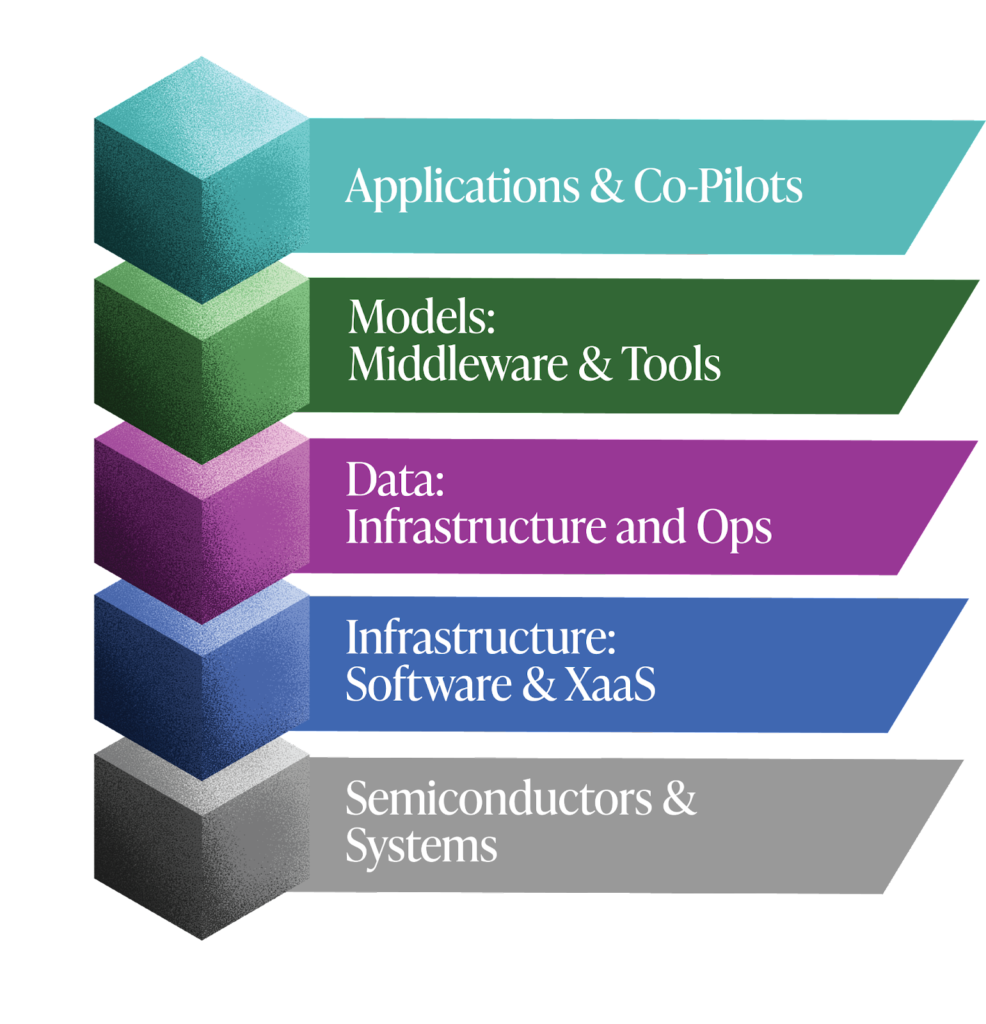

We believe that we are at the dawn of the generative AI era, similar to the prior PC, web, mobile and cloud eras, which represents a sea change in how consumers and businesses will interact with technology. However, building successful companies will require a specialized focus from investors — not just in providing capital but also in operational prowess that’s as unique and forward-thinking as the generative AI industry itself.
Last week, we announced the first dedicated seed vehicle in our history, the $250 million Mayfield AI Start, which will support founders starting at day zero.
As we meet with many AI-native founders, here are the top five questions we’re asking to help guide their journey from inception to iconic.
Paradigm shifts propel the rebuilding of the technology stack, creating new enduring companies in every era. For instance, Oracle rose to prominence as the PC era enterprise software provider, but in the cloud era, Salesforce and the SaaS model became a viable alternative. Intel dominated as the chip king in the PC era but mobile customers preferred ARM (Advanced RISC Machine), which is now being displaced by RISC-V today.
The AI era has already created leaders like Nvidia on the chip front and is giving rise to emerging leaders like open source AI model community Hugging Face (similar to GitHub in the cloud age) and foundational model platform OpenAI, whose ChatGPT is being compared to the Netscape browser moment of the web era.
So we are encouraging AI-first founders to think big about how they will become an independent company that dominates a layer of the new technology stack.

AI-powered innovation, in particular with large language models and generative AI, has the opportunity to create new markets and shift the dynamics in existing markets. But it is important to identify what innovation bet a founder is making and frame it as a painkiller, not a vitamin for the specific persona they are targeting.
Some questions we are encouraging founders to ask include:
We believe that innovation does not stop at the technology or product level, but extends across the value chain. We ask founders to think about other moats they can build, like:
AI has been described as everything from an extinction event to the latest chapter in the investing hype cycle. For several years now, we have seen companies leverage a movement we refer to as the “Rise of the Individual,” in which software augments humans and elevates them versus merely thinking of them as their customers. Founders who begin with the intention of building AI that is a teammate to humans by providing a co-pilot for their users are already seeing huge adoption.

Investors appreciate founders having a clear idea of how they will use the capital they plan to raise. It should match their team makeup (e.g., if it’s a solo founder, she needs to make sure she sets aside enough of an ESOP pool to attract her founding hires); their business model (allocating enough cash if it is a compute-heavy model); and their early product plans (if it’s software only, will it require infrastructure for training, etc.).
We look forward to partnering with bold entrepreneurs to power a responsible AI-first future!
Originally published on TechCrunch.
